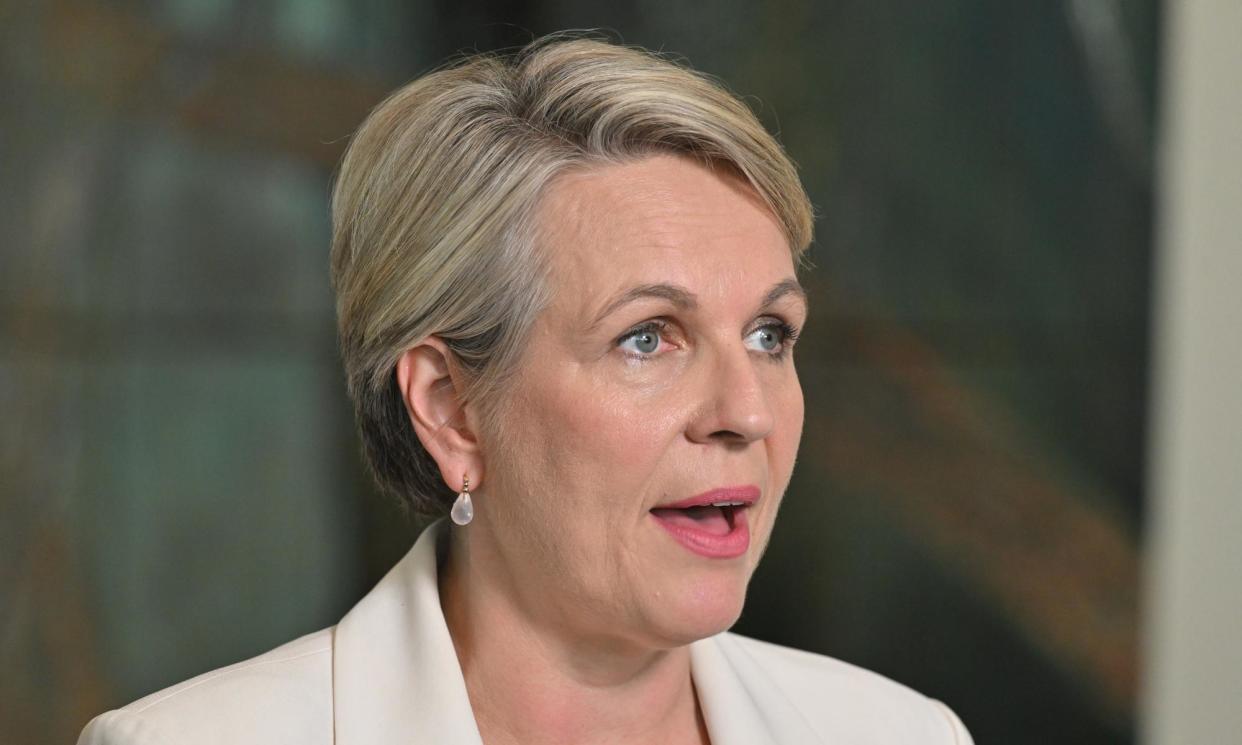Labor accused of broken promise after delaying laws to address Australia’s extinction crisis

The Albanese government has further delayed a commitment to rewrite Australia’s failing national environment laws.
The environment minister, Tanya Plibersek, said the government would introduce legislation in coming weeks to create two previously announced bodies – an environment protection agency and a second organisation called Environment Information Australia, which will provide public data on ecosystems, plants and animals.
But a commitment to introduce a suite of laws to address Australia’s extinction crisis, including new national environmental standards against which development proposals would be assessed, has been pushed back to an unspecified date.
At a media conference on Tuesday, Plibersek said the announcement of legislation for a national EPA – to be known as Environment Protection Australia – was a “historic day for the environment”.
But she did not guarantee that the broader package of environment laws, including the national standards, would be introduced before the next election. “They’ll be introduced when they’re ready,” she said.
The delay to wider reforms sparked accusations that the government was failing to deliver the overarching environment reform it announced in 2022. The Greens’ environment spokesperson, Sarah Hanson-Young, accused Labor of breaking a promise.
James Trezise, the director of the not-for-profit Biodiversity Council, said the delay was a “significant step back from what the Albanese government committed to in its nature positive plan”.
“Nature in Australia is in crisis and can’t afford delays in the comprehensive reforms needed to fix our weak and broken environmental laws,” he said.
Plibersek had initially promised to introduce new laws – first in draft form for consultation and then to the parliament – by last year.
Speaking in 2022, she said multiple reviews had shown the existing law, the Environment Protection and Biodiversity Conservation Act, was “broken”. She promised changes in 2023 that would be better for business and the environment, including the introduction of national environmental standards, faster decision-making and improved trust and integrity in the system.
But the plans have faced a public backlash from the Western Australian Labor premier, Roger Cook, and the state’s powerful mining and resources industries.
On Tuesday, Plibersek said splitting up the changes would allow more time for consultation and to “make sure we get this right”.
“When I first announced the nature-positive plan, I said it would take a bit of cooperation, compromise and common sense to deliver. That’s exactly how we’re approaching the rollout,” she said.
Related: Tanya Plibersek rejects Toondah Harbour project over impact on globally significant wetlands
Plibersek said the EPA legislation would create an agency with “strong new powers to better protect nature”, including being able to issue environment protection orders – effectively “stop-work” orders. She said the laws would allow the EPA to act as a delegate for the minister and make decisions on whether development proposals went ahead.
The agency would initially be focused on cracking down on illegal land clearing and enforcing environmental offsetting conditions. A government audit found about one in seven developments approved under the existing laws could be in breach of offset conditions that required some form of compensation in return for being allowed to damage nature.
Plibersek said the EPA chief would be an independent statutory appointment similar to the Australian federal police commissioner “to make sure no government can interfere with the new agency’s important enforcement work”. The agency would initially sit within the environment department before becoming an independent statutory authority in July 2025.
Plibersek said the second new body, Environment Information Australia, would release a national state of the environment report every two years. Its primary role would be to provide “up-to-the-minute” information on Australia’s environment to assist the public and business.
The Coalition’s environment spokesperson, Jonathon Duniam, said the announcement showed Plibersek had failed as environment minister, describing it as the creation of a “new bureaucracy with no new laws to administer”.
Hanson-Young said the changes did not go far enough to protect nature and accused the government of giving in to a two-year-long campaign by “the mining industry and big developers”. She said the government was engaged in “piecemeal tinkering”, when it had promised a full environment law reform package.
Related: Continued logging of NSW koala habitat is ‘a profound tragedy’, conservationist says
“Labor promised to fix Australia’s broken environment laws, but without stopping native forest logging and fossil fuel expansions, the government will be failing to protect our planet and failing to keep its promise to the Australian people,” she said.
Conservation groups called on the government to deliver the promised full package of reform before the election and expressed disappointment over the delays.
The Australian Conservation Foundation chief executive, Kelly O’Shanassy, said the promised crackdown on illegal land clearing and the establishment of an EPA were “welcome and necessary”, but without comprehensive reform, the agency would be “enforcing a flawed and ineffective law that still needs serious surgery”.
Environment groups are expected to air their concerns with the changes at a Senate inquiry hearing into the extinction crisis on Wednesday.


